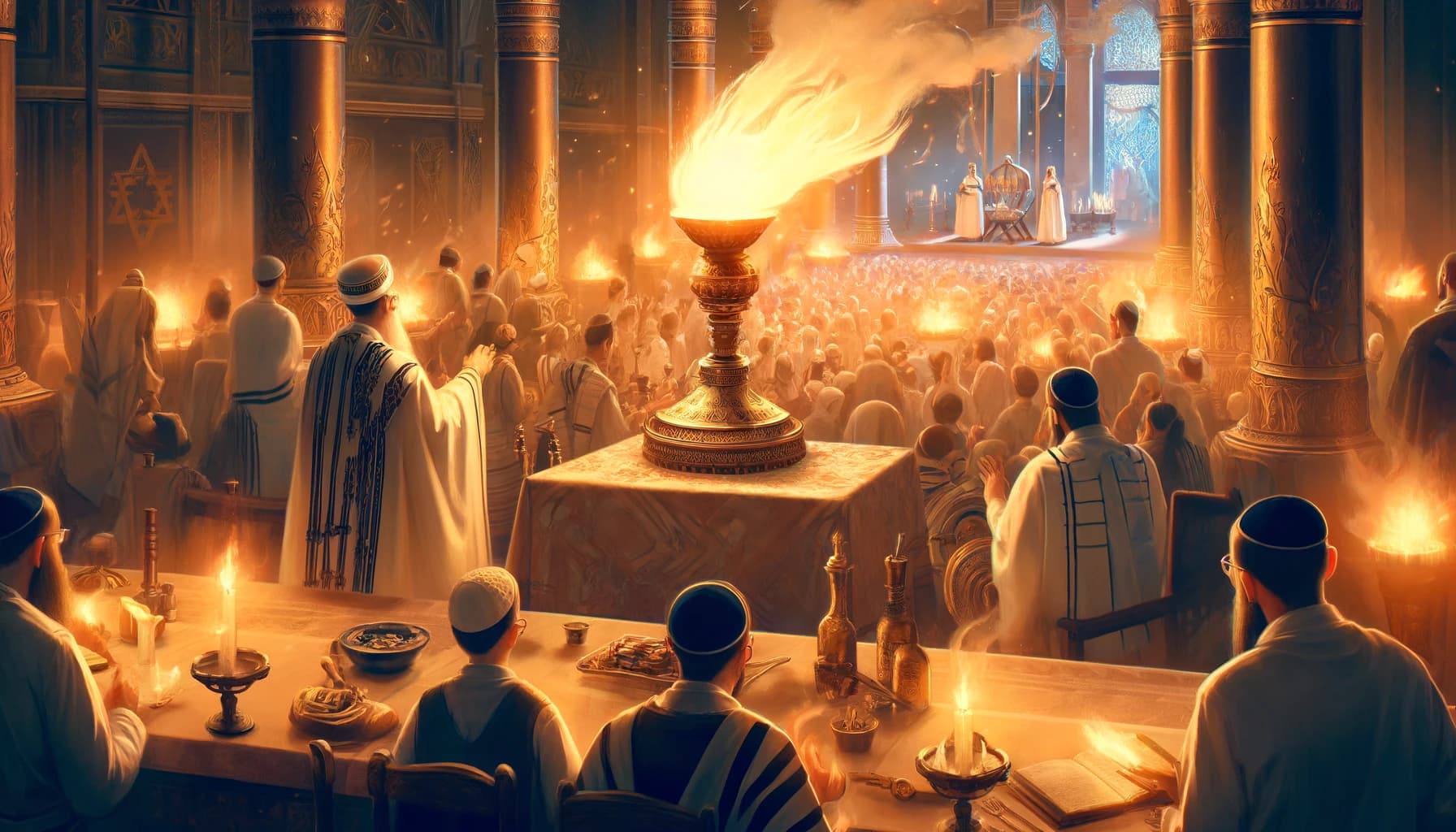Parshat Tzav - צו



· 4 min read,
489 words
Exploring Parshat Tzav: A Deeper Dive into Divine Service
Parshat Tzav, the second portion in the Book of Leviticus, continues the discussion from Vayikra, focusing on the laws concerning the various sacrifices offered in the Tabernacle. This portion provides detailed instructions on the performance of these sacrifices, emphasizing the roles of the priests and the laity in these rituals. Tzav, which means "command," underscores the importance of obedience and devotion in the divine service.
The Eternal Flame: A Symbol of Continuous Devotion
One of the central themes of Parshat Tzav is the command to keep the fire on the altar burning continuously, a symbol of the Israelites' unending devotion to God. This eternal flame is not merely a physical requirement but a spiritual metaphor, urging us to maintain a constant and fervent passion in our service to God, and in our moral and ethical lives. Just as the fire must never be extinguished, so too should our enthusiasm for Torah and mitzvot perpetually burn within us.
The Role of the Priests and the People
While Parshat Vayikra introduces the various offerings, Tzav delves deeper into the procedural aspects, particularly the roles and responsibilities of the priests. This parasha highlights the communal involvement in the sacrificial process, suggesting a shared responsibility between the priests and the community in upholding the sanctity of the divine service. This shared responsibility reinforces the idea of a collective commitment to holiness and ethical conduct, resonating with the concept of a "kingdom of priests."
The Meal Offering: Humility and Devotion
Tzav also details the meal offering, a simpler and more accessible sacrifice made from flour, oil, and frankincense. This offering, primarily the domain of the common person, emphasizes that one does not need to bring the grandest or the most expensive offerings to find favor with God. It underscores the value of humility and the purity of intention over the material value of the offerings.
Fostering a Community of Devotion
The detailed descriptions of the offerings in Tzav serve not only as liturgical instructions but as a framework for building a devout community. The rituals of the sacrifices are designed to foster a sense of unity and shared purpose among the Israelites. They remind us that every individual, regardless of their role or status, contributes to the spiritual fabric of the community.
Conclusion
Parshat Tzav invites us to reflect on our personal contributions to our communities and our commitment to continuous spiritual growth. It challenges us to keep the flame of our devotion alive, to engage actively in our communities, and to approach our spiritual responsibilities with humility and sincerity. Through the rituals of the sacrifices, we are taught the values of obedience, communal responsibility, and the enduring nature of our commitments to faith and ethical living. Just as the priests perform their duties with dedication, so too are we called to live our lives with a deep sense of sacred service and moral integrity.